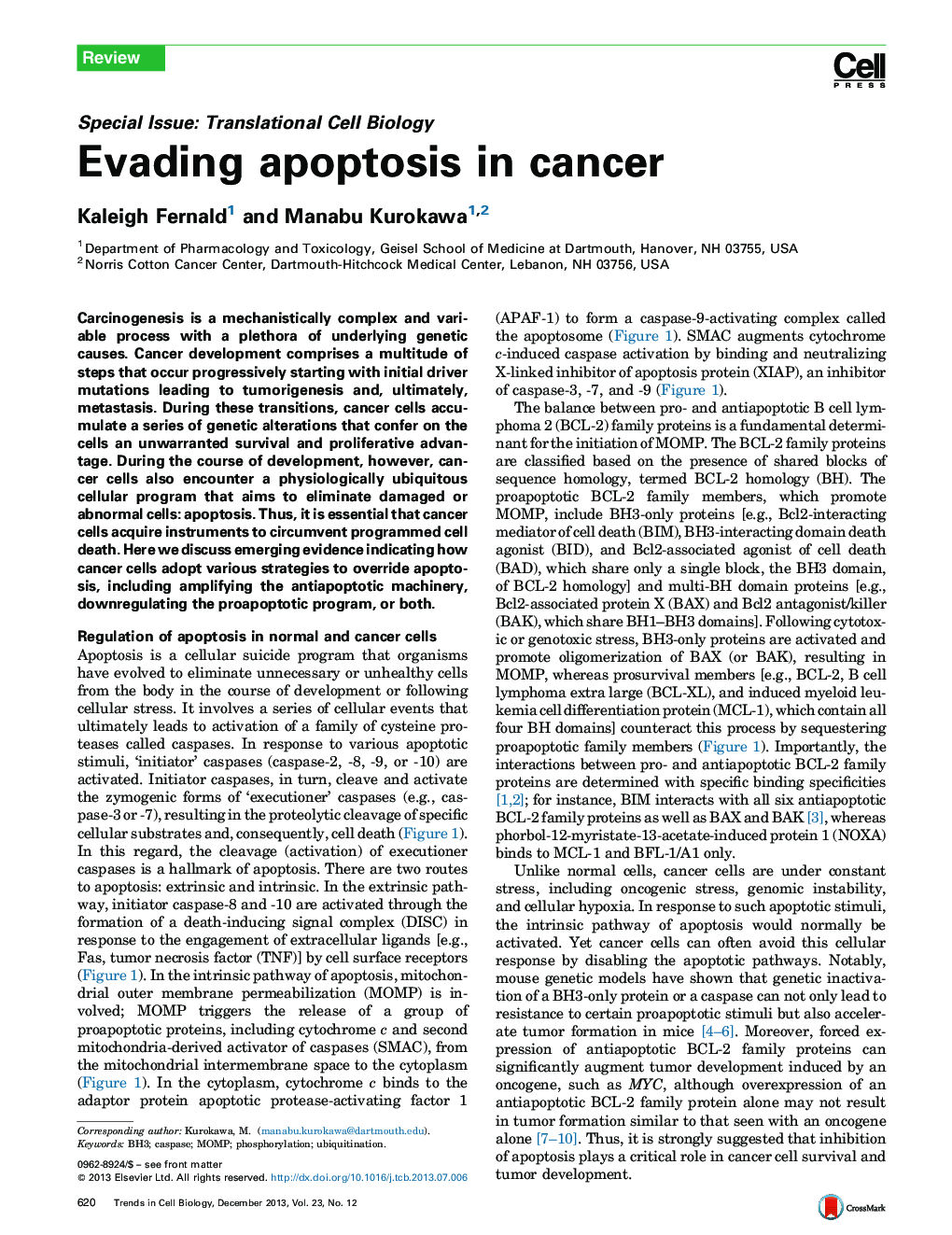| Article ID | Journal | Published Year | Pages | File Type |
|---|---|---|---|---|
| 2204477 | Trends in Cell Biology | 2013 | 14 Pages |
•Cancer cells employ multiple strategies to block apoptosis.•Cancer cells modulate apoptotic signals at genomic and protein levels.•Agents that can globally alter cancer's apoptotic resistance may be more valuable.
Carcinogenesis is a mechanistically complex and variable process with a plethora of underlying genetic causes. Cancer development comprises a multitude of steps that occur progressively starting with initial driver mutations leading to tumorigenesis and, ultimately, metastasis. During these transitions, cancer cells accumulate a series of genetic alterations that confer on the cells an unwarranted survival and proliferative advantage. During the course of development, however, cancer cells also encounter a physiologically ubiquitous cellular program that aims to eliminate damaged or abnormal cells: apoptosis. Thus, it is essential that cancer cells acquire instruments to circumvent programmed cell death. Here we discuss emerging evidence indicating how cancer cells adopt various strategies to override apoptosis, including amplifying the antiapoptotic machinery, downregulating the proapoptotic program, or both.
